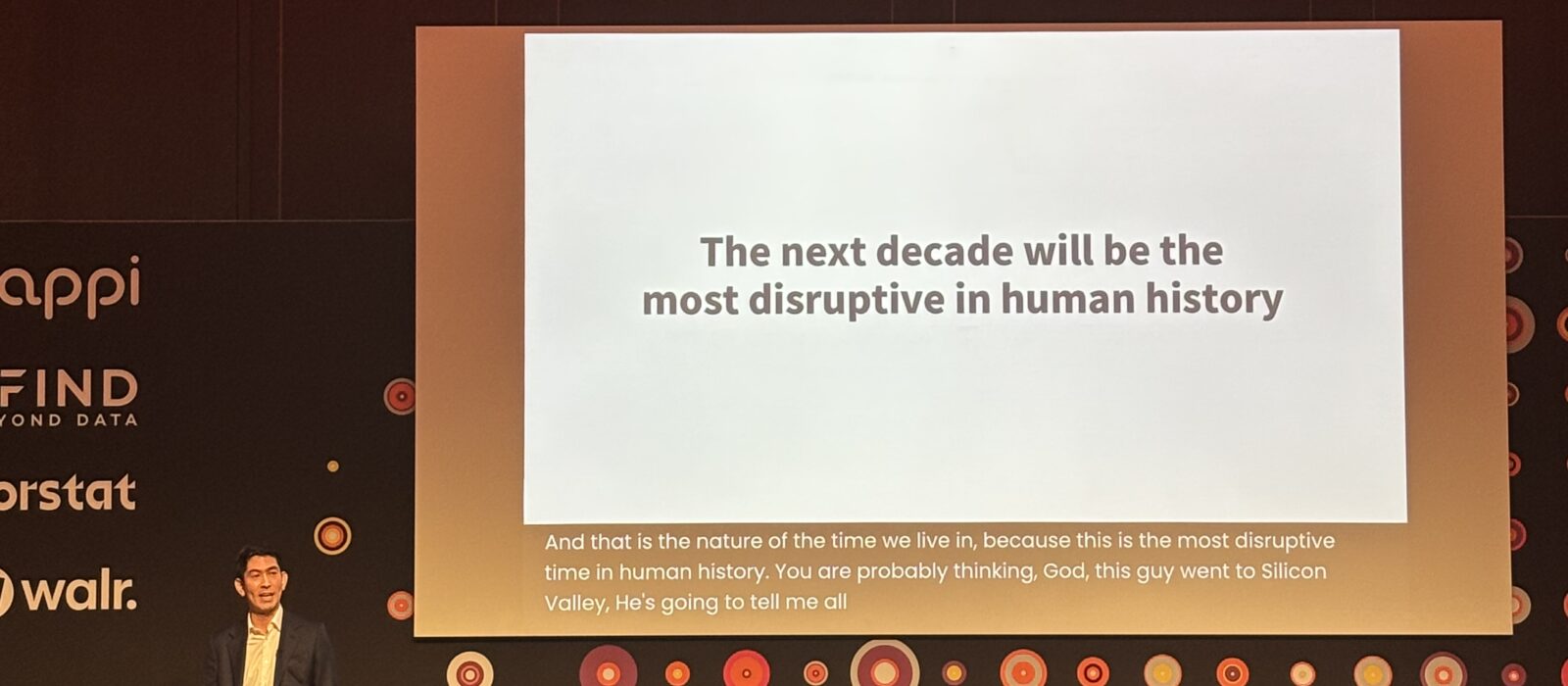
Every data point matters (a researcher’s POV)
Reading Time: < 1 minute

One of the central themes emerging from this year’s MRS Annual Conference was the evolving concepts of truths, facts, and lies. This was something borne out of ex-Meta & SpaceX spin-doctor Dex Hunter-Torricke’s fascinating – and in-part terrifying – morning keynote.
He reflected that there are new centres of authority, reshaping political and social structures globally. This is reflected in an erosion of trust, particularly in the UK. Combine this with the phenomenal growth of generative AI – capable of producing highly convincing deep fakes – and the dominance of social networks owned by politically aligned billionaires as a worthy news source, and you begin to see what the future holds.
I never thought I’d have reason to cite a Fall Out Boy lyric in my career, so today is a personal highlight.
The panel discussion following the keynote tackled the growing crisis of misinformation. Panellists included Donie O’Sullivan (CNN Worldwide), Hebe Campbell (The Independent), and Chris Morris (Full Fact).
They highlighted a worrying uptick in misbelief in recent years – we are rapidly approaching a time where nobody believes what they see, hear, or read anywhere online. And the reality is, humans alone can’t fight this. AI-powered tools are becoming essential to help the small minority of experts operating in this space to help identify emerging misinformation trends and stamp them out at the root.
They noted that our propensity to sign up to conspiracy theories and inaccurate information is so much higher when they offer precise and easy answers to difficult questions. This is something Dan Ariely also noted in his recent book Misbelief. It is those in society who are most vulnerable that are often victim to these lies.
While journalistic integrity and the growing QAnon following are topics I could discuss for days, what was most interesting to me was the output of these trends on the very industry in which we work.
The afternoon MRS Thinks panel provided an opportunity to hear from senior industry leaders on the ever-heated topic of data quality. Debrah Harding (MRS) was joined by Melanie Courtright (Insights Association), Joanna Bygrave (NIQ Bases), and Sebastian Mitchinson (HSBC). They explored the growing issue of poor-quality data and its impact on trust and investment in the research sector.
One phrase stood out – the “sea of sameness” – a world where unreliable data leads to flawed insights, making it harder for businesses to make informed decisions. Our own experiments in this space have demonstrated just how damaging poor-quality data can be to decision-making. It is our duty to collaborate and galvanise behind this issue if we are to continue to justify primary data collection.
If we, as an industry, are peddling poor quality data, we’re ultimately peddling lies.
In a world where trust is at an all-time low and lies are readily presented as truth, we need to ensure we are championing the facts. That means prioritising data quality, demanding transparency, and working together to uphold the standards of our profession.
Frances Revel-Cooper
Head of Custom Insight